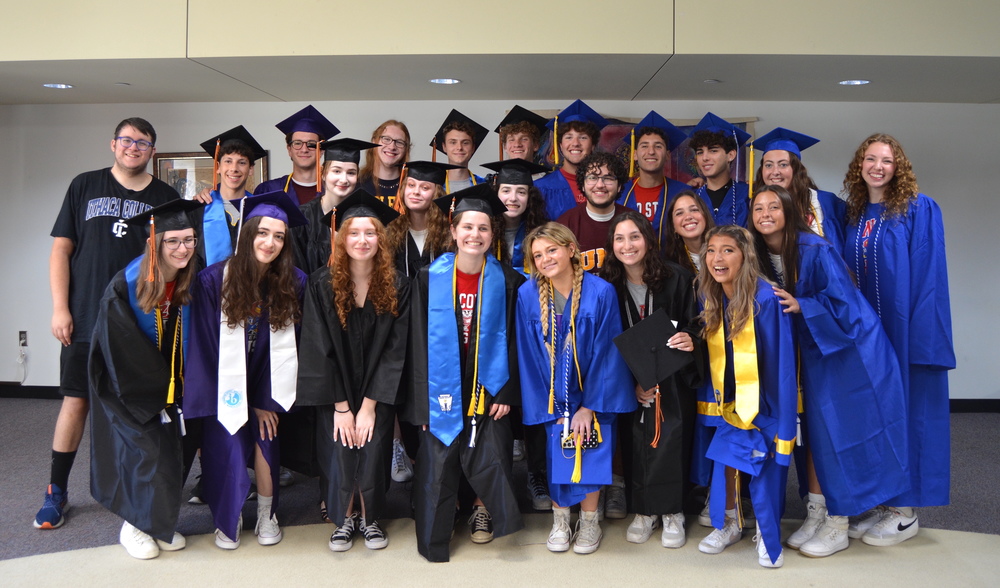Earlier this month, the Heilicher Student and Teacher Resource Team (STRT) hosted our annual high school information night for middle school students. We assembled a panel of high school-aged alumni and their parents to answer questions for families thinking about high school options after Heilicher. The alumni represented various high schools, private and public. The event provided a unique platform to ask questions, gain valuable insights, and learn from the experiences of our alumni.
One thing that is clear from their answers is Heilicher graduates are well-prepared to advance to the high school of their choice. Our students tend to feel confident about their academic preparedness. In fact, you’re more likely to hear them worry about being in a new environment — particularly at a bigger school or one where they don’t know a lot of classmates.
Fortunately, Heilicher’s focus on building confidence alleviates many of those worries. I’ve found that one of the benefits of a small, independent school is that students develop congenial relationships with staff and school-associated adults. This allows them to easily communicate with their teachers when they move on to the next level. Our students also learn to advocate for themselves and are instilled with the values that enable them to practice good citizenship.
Anecdotally, we have many examples of how well our students perform after leaving Heilicher. Alumni regularly share how their Heilicher foundation primed them for a successful transition to future educational levels.
“Heilicher prepared me for secondary education by providing challenging classes, actively preparing me for the more rigorous coursework that high school brought. I also learned how to effectively communicate my opinions, emotions, and thoughts in constructive ways so I could better grow in a learning community,” explained Abie Harris (Heilicher, 2021).
And Aliza Olitzky (2024) shared, “A Heilicher value that I’ve carried forward is the importance of building strong relationships with those around you, teachers in particular, to create a learning environment that is both meaningful and enjoyable.”
As families think about which high school might be the best fit for their child, here are several things to consider:
Look for schools that provide your child with the most opportunities to “stretch.” You want them to have new experiences, to explore and experiment. That might mean offering your sport-loving child an opportunity to also tap into a theater program.
Look for school environments that encourage and support individualism.
Find the best size for your student. Some children flourish in a smaller school setting; others are more challenged by a larger school environment.
Make sure the school you are considering offers good college counseling services — that is a critical resource for future success.
If you would like more insights into what to expect and ways to prepare your child to successfully transition to high school, please contact the Student and Teacher Resource Team. We will host another high school information night next school year. Whether you’re curious about academics, extracurriculars, or the transition to high school, our panelists provide perspectives to help guide your high school decisions.

